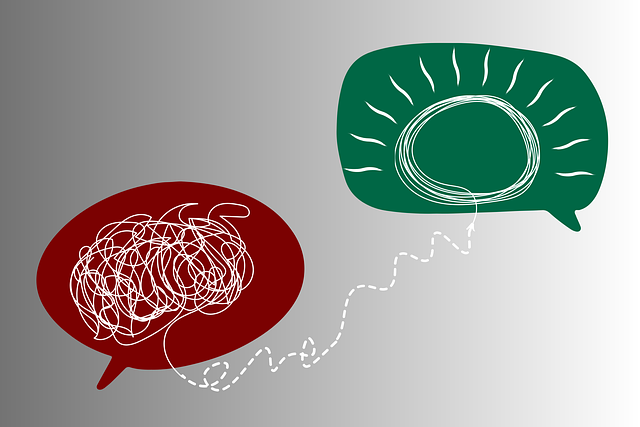Self-care is crucial for managing stress and recovering from trauma, as highlighted by Longmont Child Abuse Therapy. Individuals can build resilience through mindfulness, setting boundaries, and seeking professional support. Longmont Child Abuse Therapy sessions guide clients to identify personal needs, develop self-care routines, and improve mental health through social skills training and self-esteem improvement. Overcoming barriers like time constraints or lack of motivation is essential; strategies include structured planning, prioritizing self-care, and leveraging podcasts for inspiration and education.
In today’s fast-paced world, self-care is not a luxury but a necessity. For those who have experienced trauma, such as child abuse in Longmont, establishing and maintaining healthy self-care practices can be transformative. This article guides you through understanding the core principles of self-care, identifying personal needs, and setting boundaries. We’ll explore practical strategies for integrating daily self-care routines and overcoming barriers to help you embark on a journey towards holistic well-being.
- Understanding Self-Care: The Foundation for Well-being
- Identifying Personal Needs and Boundaries in Therapy
- Strategies for Incorporating Self-Care Routines Daily
- Overcoming Barriers and Staying Motivated on Your Journey
Understanding Self-Care: The Foundation for Well-being

Self-care is a fundamental concept that involves attending to one’s physical, emotional, and psychological needs. It is about creating a balanced lifestyle that supports overall well-being. Understanding self-care is crucial, especially in today’s fast-paced world where stress and mental health challenges are prevalent. Many individuals, particularly those who have experienced trauma like Longmont Child Abuse Therapy, often neglect their own needs, prioritizing others’ well-being instead. This can lead to burnout and adverse effects on mental health.
Recognizing the importance of self-care lays the foundation for cultivating inner strength and resilience. It involves practicing mindfulness, engaging in activities that bring joy, setting healthy boundaries, and seeking professional support when needed. By incorporating practices such as meditation, therapy sessions, or participating in Mental Health Education Programs Design, individuals can enhance their mental health awareness and policy analysis skills. This, in turn, empowers them to advocate for themselves and others, ensuring a more supportive Mental Health Policy Analysis and Advocacy environment.
Identifying Personal Needs and Boundaries in Therapy

In Longmont Child Abuse Therapy sessions, individuals often begin their healing journey by exploring and identifying personal needs and boundaries. This introspective process is a cornerstone for self-care routine development, fostering better mental health. Therapists help clients recognize emotional cues and physical triggers, enabling them to set healthy limits in relationships and situations that may have been harmful in the past. By understanding these personal needs, individuals can start to build resilience and practice self-compassion—crucial aspects for enhancing overall well-being.
Additionally, Longmont Child Abuse Therapy incorporates social skills training and self-esteem improvement techniques to empower clients. Through guided exercises and discussions, individuals learn to navigate social interactions with confidence and assertiveness. This not only strengthens their ability to communicate needs but also fosters a positive sense of self, encouraging healthier relationships and personal growth.
Strategies for Incorporating Self-Care Routines Daily

Incorporating daily self-care routines can be a transformative practice for individuals looking to enhance their mental health and overall well-being, especially those who have experienced challenging situations like child abuse. Longmont Child Abuse Therapy emphasizes the importance of self-nurturing as a powerful tool for healing and personal growth. A simple yet effective strategy is to start small, identifying specific activities that bring you joy and relaxation. This could be as routine as dedicating 15 minutes each morning for mindfulness exercises or engaging in creative pursuits like journaling or painting.
Consistency is key; setting aside dedicated time for self-care ensures it becomes an integral part of your daily life. Incorporate these practices into existing routines, whether it’s a relaxing bath after work or a brisk walk during lunch breaks. By prioritizing self-care, you not only honor your own needs but also cultivate resilience and improved social skills through better mental health awareness, as highlighted in Social Skills Training programs.
Overcoming Barriers and Staying Motivated on Your Journey

Overcoming barriers is a crucial step in your self-care journey. Many individuals seeking Longmont Child Abuse Therapy often face challenges that can hinder their progress. These might include time constraints, feeling overwhelmed by responsibilities, or struggling with motivation. It’s essential to acknowledge these obstacles and develop strategies to navigate them. One effective approach is to set realistic goals and create a structured plan, integrating concepts from Risk Management Planning for Mental Health Professionals. This involves prioritizing self-care activities and scheduling them into your routine, ensuring they become non-negotiable appointments with yourself.
Staying motivated requires a shift in perspective and embracing Mind Over Matter Principles. Engaging in practices like journaling, meditation, or listening to inspiring mental wellness podcasts can help reignite your passion for self-improvement. The Mental Wellness Podcast Series Production can offer valuable insights and support from experts, reminding you of the positive impact self-care has on your overall well-being. By combining these strategies, individuals can overcome barriers and maintain momentum on their path to improved self-care.
Self-care is a powerful tool for healing and well-being, especially for those who have experienced trauma like child abuse. By understanding the importance of self-care and implementing strategies tailored to individual needs, individuals can improve their mental health and overall quality of life. Longmont Child Abuse Therapy encourages everyone to embrace these practices, offering a path towards resilience and a brighter future. Through consistent effort and overcoming barriers, incorporating daily self-care routines becomes a transformative journey of self-love and discovery.














